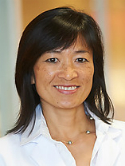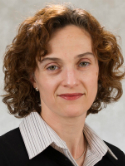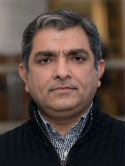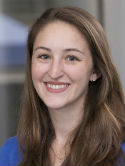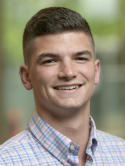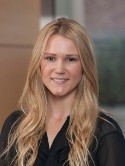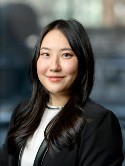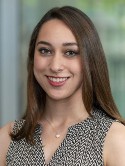Neoadjuvant exercise therapy in prostate cancer: A phase 1, decentralized nonrandomized controlled trial Journal Article
| Authors: | Jones, L. W.; Moskowitz, C. S.; Lee, C. P.; Fickera, G. A.; Chun, S. S.; Michalski, M. G.; Stoeckel, K.; Underwood, W. P.; Lavery, J. A.; Bhanot, U.; Linkov, I.; Dang, C. T.; Ehdaie, B.; Laudone, V. P.; Eastham, J. A.; Collins, A.; Sheerin, P. T.; Liu, L. Y.; Eng, S. E.; Boutros, P. C. |
| Article Title: | Neoadjuvant exercise therapy in prostate cancer: A phase 1, decentralized nonrandomized controlled trial |
| Abstract: | Importance: Observational data have shown that postdiagnosis exercise is associated with reduced risk of prostate cancer death. The feasibility and tumor biological activity of exercise therapy is not known. Objective: To identify recommended phase 2 dose of exercise therapy for patients with prostate cancer. Design, Setting, and Participants: This single-center, phase 1a dose-finding trial was conducted at a tertiary cancer center using a patientcentric, decentralized platform and included 53 inactive men with treatment-naive localized prostate cancer scheduled to undergo surgical resection between June 2019 and January 2023. Data were analyzed in June 2024. Intervention: Six escalated exercise therapy dose levels ranging from 90 to 450 minutes per week of individualized, moderate-intensity treadmill walking, allocated using adaptive continual reassessment. All exercise therapy sessions were conducted remotely with real-time monitoring. Main Outcomes and Measures: Feasibility was evaluated by relative exercise dose intensity (REDI). A dose level was considered feasible if 70% or more of patients achieved an REDI of 75% or greater. Activity end points were changes in tumor cell proliferation (Ki67) and plasma prostate-specific antigen levels between pretreatment and postintervention. Safety and changes in patient physiology were also assessed. Results: A total of 53 men were enrolled (median [IQR] age, 61 [56-66] years). All dose levels were feasible (≥75% REDI). The mean (95% CI) changes in Ki67 were 5.0% (-4.3% to 14.0%) for 90 minutes per week, 2.4% (-1.3% to 6.2%) for 150 minutes per week, -1.3% (-5.8% to 3.3%) for 225 minutes per week, -0.2% (-4.0% to 3.7%) for 300 minutes per week, -2.6% (-9.2% to 4.1%) for 375 minutes per week, and 2.2% (-0.8% to 5.1%) for 450 minutes per week. Changes in prostate-specific antigen levels were 1.0 ng/mL (-1.8 to 3.8) for 90 minutes per week, 0.2 ng/mL (-1.1 to 1.5) for 150 minutes per week, -0.5 ng/mL (-1.2 to 0.3) for 225 minutes per week, -0.2 (-1.7 to 1.3) for 300 minutes per week, -0.7 ng/mL (-1.7 to 0.4) for 375 minutes per week, and -0.9 ng/mL (-2.4 to 0.7) for 450 minutes per week. No serious adverse events were observed. Overall, 225 minutes per week (approximately 45 minutes per treatment at 5 times weekly) was selected as the recommended phase 2 dose. Conclusions and Relevance: The results of this nonrandomized clinical trial suggest that neoadjuvant exercise therapy is feasible and safe with promising activity in localized prostate cancer. Trial Registration: ClinicalTrials.gov Identifier: NCT03813615. |
| Keywords: | treatment outcome; aged; middle aged; clinical trial; neoadjuvant therapy; ki 67 antigen; ki-67 antigen; prostate specific antigen; metabolism; pathology; prostate-specific antigen; prostatic neoplasms; blood; feasibility study; feasibility studies; prostate tumor; phase 1 clinical trial; therapy; kinesiotherapy; exercise therapy; procedures; humans; human; male |
| Journal Title: | JAMA Oncology |
| Volume: | 10 |
| Issue: | 9 |
| ISSN: | 2374-2437 |
| Publisher: | American Medical Association |
| Date Published: | 2024-09-01 |
| Start Page: | 1187 |
| End Page: | 1194 |
| Language: | English |
| DOI: | 10.1001/jamaoncol.2024.2156 |
| PUBMED: | 39023900 |
| PROVIDER: | scopus |
| PMCID: | PMC11258635 |
| DOI/URL: | |
| Notes: | The MSK Cancer Center Support Grant (P30 CA008748) is acknowledged in the PDF. Corresponding MSK author is Lee W. Jones-- Source: Scopus |
Altmetric
Citation Impact
BMJ Impact Analytics
MSK Authors
Related MSK Work





